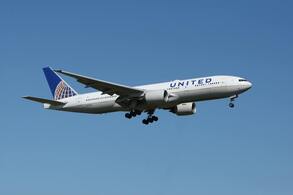
Instead, I’d like to look at United’s Horrible, No Good, Very Bad Time from the perspective of Danny Rand.
If you’re a Netflix-and-chill kind of person, or a Marvel Comics fan, you might recognize the name. Danny Rand is a fictional character also known as the Iron Fist. Lost in a plane crash in the Himalayas, Danny is rescued by monks who teach him martial arts and train him to be the latest in a line of warriors protecting their realm.
In the new Netflix series based on the character, Danny returns to civilization and takes his place as heir to a major corporation. He immediately upends corporate behavior. When the company develops a life-saving drug, Danny insists it be sold at cost. When a mother tells Danny his company environmental failures gave her son cancer, he promises to help – to the dismay of corporate lawyers.
Danny Rand brings something that’s clearly lacking not only in United’s public response, but in most corporations: empathy.
Businesses like to say they put the customer first. Few actually do. “Customer first” means a company understands the needs and feelings of the people it serves, and it adjusts its business decisions and behaviors accordingly. In reality, too many businesses tell customers what to need or feel.
Therein lies the problem with United Airlines. It failed to adapt to the needs and feelings of its customers. Instead, it adhered to a poorly planned (or poorly executed) process. The result – dragging a screaming man through an aircraft in front of horrified passengers and ultimately a world full of YouTube viewers – is an epic reputation disaster. (Nor is it the first time United has threatened a bumped passenger.)
United made things worse with its bland, lawyer-drafted initial response, then a flaccid apology from the CEO – “re-accommodate” will live forever alongside “alternative facts” – followed by an internal message that praised employees and criticized the passenger. United’s seemingly more heartfelt apology, issued Tuesday, is a step in the right direction, albeit a late one.
Many other PR pros have pointed out what United needs to do, or should have done in the first place. I won’t repeat those wise words here. But I do hope United and other corporations take serious note of what happens when empathy is an afterthought.
Yesterday’s New York Times ran an opinion piece that explained how United isn’t alone in its lack of empathy, especially when it comes to “less privileged” audiences. But empathy isn’t just a nice add-on; it’s essential to our humanity. And if that statement makes you uncomfortable – how sad if it does – then think of empathy as a competitive advantage for business.
As this article in Fast Company notes: “Progressive companies, almost without exception, are experts at intuiting customers’ discomfort and acting on it. … Empathy isn’t merely a foundation to build a business on; it’s also a way to adapt when the market inevitably turns.”
Or in United's case, building a corporate culture around empathy, truly caring for and structuring procedures around customers first, could have prevented a disaster that will haunt them for a long time.
Empathy rarely shows up in business plans. It never figures into shareholder speeches. At best, it gets lip service in annual reports. In the business world, empathy isn’t normal.
On that point, corporate America would do well to listen to the Iron Fist:
“Then normal is not the path to take.”

 RSS Feed
RSS Feed
